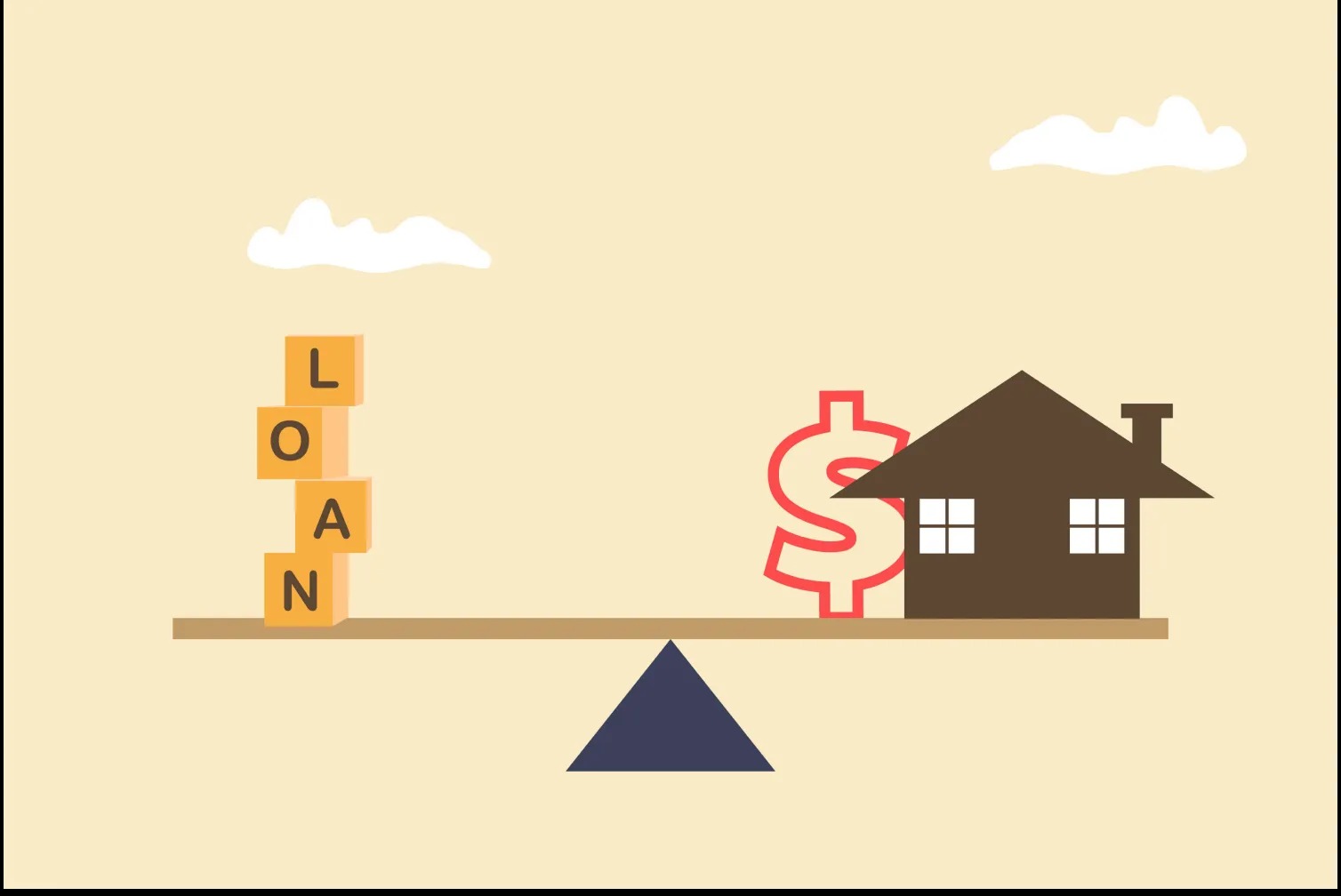Home>Finance>What Is The Grace Period To Pay Your Mortgage With Wells Fargo?


Finance
What Is The Grace Period To Pay Your Mortgage With Wells Fargo?
Published: February 20, 2024
Learn about the grace period for paying your mortgage with Wells Fargo and manage your finances effectively. Understand the options available to avoid late payments and potential penalties.
(Many of the links in this article redirect to a specific reviewed product. Your purchase of these products through affiliate links helps to generate commission for LiveWell, at no extra cost. Learn more)
Table of Contents
**
Introduction
**
Purchasing a home is a momentous achievement, marking a significant milestone in one's life. For many, this accomplishment is made possible through a mortgage, a financial commitment that necessitates timely payments. Understanding the grace period associated with mortgage payments is crucial for homeowners, as it offers a window of time beyond the due date during which payment can be made without incurring penalties.
The grace period serves as a buffer, providing homeowners with a brief extension beyond the due date to submit their mortgage payment. This period can be a source of relief for individuals facing temporary financial constraints or unexpected expenses, offering them the flexibility to manage their finances without facing immediate repercussions.
In the context of Wells Fargo, one of the leading mortgage lenders, the grace period policy holds significance for its customers. By delving into the specifics of Wells Fargo's grace period policy, homeowners can gain insight into the allowances and implications associated with their mortgage payments. Understanding these details empowers individuals to navigate their financial responsibilities with confidence and foresight.
In this comprehensive guide, we will explore the concept of the grace period in the context of mortgage payments, shedding light on Wells Fargo's specific policies and the implications of adhering to or missing the grace period. Furthermore, we will delve into the benefits of the grace period, providing valuable insights for homeowners seeking to optimize their mortgage management. Additionally, we will outline essential tips for effectively managing mortgage payments, ensuring that homeowners can navigate this aspect of homeownership with prudence and ease.
**
Understanding the Grace Period
**
Before delving into the specifics of Wells Fargo’s grace period policy, it is essential to grasp the fundamental concept of the grace period itself. In the realm of mortgage payments, the grace period refers to the additional time granted to borrowers beyond the due date to make their payment without incurring late fees or penalties.
The duration of a grace period varies among lenders, with common timelines ranging from 10 to 15 days. During this period, borrowers can submit their mortgage payment without facing adverse consequences, safeguarding them against immediate financial penalties in the event of a delayed payment.
It is important to note that while the grace period offers a degree of leniency, it does not alter the fact that the mortgage payment is due on a specific date each month. Therefore, borrowers should view the grace period as a safety net, rather than a license for habitual late payments.
Understanding the grace period empowers homeowners to navigate their financial obligations with clarity and foresight. It provides a temporary reprieve for individuals facing unforeseen financial challenges, allowing them to manage their resources effectively without incurring immediate penalties.
Furthermore, comprehending the grace period enables borrowers to make informed decisions regarding their mortgage payments, ensuring that they leverage this additional time judiciously when necessary, while prioritizing timely payments as a standard practice.
As we delve into Wells Fargo’s specific grace period policy, it is vital to recognize the significance of this extension and its implications for homeowners. By gaining a comprehensive understanding of the grace period, borrowers can approach their mortgage payments with confidence and strategic financial management.
**
Wells Fargo Mortgage Grace Period Policy
**
Wells Fargo, a prominent player in the mortgage lending industry, extends a grace period to its customers, providing them with a window of time beyond the due date to submit their mortgage payment without incurring late fees or penalties. The specific duration of the grace period may vary based on the terms outlined in the mortgage agreement, and it is essential for borrowers to familiarize themselves with this timeline to effectively manage their payments.
Typically, Wells Fargo’s grace period spans 15 days beyond the due date. During this period, borrowers can make their mortgage payment without facing adverse consequences, offering a degree of flexibility to manage their financial obligations.
It is important for Wells Fargo mortgage holders to review their loan documentation or consult with their mortgage servicing representative to confirm the exact details of their grace period. By understanding the specifics of this allowance, homeowners can effectively plan and allocate their resources to ensure timely payments while leveraging the grace period when necessary.
Wells Fargo’s commitment to providing a grace period reflects a customer-centric approach, acknowledging the occasional financial challenges that homeowners may encounter. This policy underscores the importance of fostering a supportive and understanding relationship with its customers, recognizing the value of flexibility within the realm of mortgage management.
By aligning with Wells Fargo’s grace period policy, homeowners can navigate their mortgage payments with greater confidence, knowing that they have a brief but meaningful extension to address any temporary financial constraints without facing immediate penalties.
As borrowers engage with Wells Fargo’s mortgage grace period, it is essential to approach this allowance with prudence and responsibility, leveraging it as a tool for financial management while prioritizing the consistent and timely fulfillment of their mortgage obligations.
**
Benefits of the Grace Period
**
The grace period associated with mortgage payments offers several valuable benefits for homeowners, serving as a safeguard against immediate financial repercussions and providing a degree of flexibility in managing one’s financial obligations.
One of the primary benefits of the grace period is the opportunity it presents for homeowners to navigate temporary financial challenges without incurring late fees or penalties. In the event of unexpected expenses or cash flow disruptions, the grace period offers a brief but meaningful extension, enabling borrowers to allocate their resources strategically and ensure timely mortgage payments without facing immediate consequences.
Moreover, the grace period fosters a sense of reassurance for homeowners, serving as a safety net in the face of unforeseen circumstances. This allowance acknowledges the inherent variability of personal finances and provides a buffer for borrowers, mitigating the stress and pressure associated with strict adherence to the due date.
Additionally, the grace period aligns with the principle of responsible financial management, empowering homeowners to prioritize their mortgage payments while leveraging the grace period judiciously when necessary. This balance between discipline and flexibility contributes to a more sustainable and manageable approach to mortgage obligations, enhancing homeowners’ overall financial well-being.
Furthermore, the grace period can be viewed as a tool for proactive financial planning, allowing homeowners to allocate their resources strategically and address any short-term financial constraints without facing immediate penalties. This aspect is particularly valuable in promoting financial resilience and empowering borrowers to navigate their mortgage payments with confidence and foresight.
By recognizing and leveraging the benefits of the grace period, homeowners can approach their mortgage payments with greater flexibility and resilience, ensuring that they can effectively manage their financial responsibilities while navigating the dynamic landscape of personal finances.
**
Consequences of Missing the Grace Period
**
While the grace period offers a valuable reprieve for homeowners, it is essential to understand the potential consequences of missing this extended deadline for mortgage payments. If a borrower fails to submit their payment within the grace period provided by their lender, they may face various adverse outcomes that can impact their financial well-being and credit standing.
One of the immediate repercussions of missing the grace period is the imposition of late fees or penalties by the lender. These additional charges can exacerbate the financial burden associated with the mortgage payment, leading to increased overall costs and potential strain on the borrower’s resources.
Moreover, consistent failure to adhere to the grace period and submit timely mortgage payments can result in negative reporting to credit bureaus, impacting the borrower’s credit score. A lower credit score can have far-reaching implications, potentially affecting the individual’s ability to secure favorable terms for future credit and financial transactions.
In more severe cases, prolonged delinquency beyond the grace period can lead to the initiation of foreclosure proceedings by the lender. This represents a critical juncture where the borrower’s homeownership is at risk, underscoring the gravity of consistently missing the grace period and failing to fulfill mortgage obligations.
Furthermore, the accumulation of missed payments and associated fees can lead to a cycle of financial strain, making it increasingly challenging for the borrower to rectify the situation and regain financial stability.
Understanding the potential consequences of missing the grace period underscores the significance of proactive and responsible mortgage management. By prioritizing timely payments and leveraging the grace period judiciously when necessary, homeowners can mitigate the risk of facing these adverse outcomes, safeguarding their financial well-being and preserving their homeownership.
**
Tips for Managing Your Mortgage Payments
**
Effectively managing mortgage payments is essential for homeowners to uphold their financial stability and preserve their investment in their property. By implementing strategic practices and leveraging available resources, borrowers can navigate their mortgage obligations with confidence and prudence. Here are valuable tips for managing mortgage payments:
- Understand Your Grace Period: Familiarize yourself with the specifics of the grace period outlined in your mortgage agreement. Knowing the duration of this allowance and the associated terms empowers you to plan your payments effectively.
- Create a Budget: Develop a comprehensive budget that encompasses your mortgage payment along with other essential expenses. Prioritize your mortgage payment within your budget to ensure timely fulfillment.
- Set Up Automatic Payments: Consider setting up automatic payments for your mortgage to ensure that your payment is submitted on time each month, reducing the risk of missing the grace period.
- Establish an Emergency Fund: Building an emergency fund can provide a financial cushion to address unforeseen expenses, reducing the likelihood of relying on the grace period due to temporary financial constraints.
- Communicate with Your Lender: In the event of financial challenges, communicate proactively with your lender. They may offer assistance or alternative payment arrangements to help you navigate temporary hardships.
- Monitor Your Finances: Regularly review your financial situation and monitor your cash flow to proactively address any potential obstacles to making timely mortgage payments.
- Avoid Unnecessary Expenses: Exercise prudence in managing your discretionary spending to ensure that you can allocate resources effectively towards your mortgage payment.
- Seek Financial Guidance: If needed, seek guidance from financial professionals who can provide insights and strategies for managing your mortgage payments effectively.
By implementing these tips and adopting a proactive approach to mortgage management, homeowners can navigate their financial responsibilities with confidence and resilience, ensuring the consistent fulfillment of their mortgage obligations while leveraging the grace period judiciously when necessary.
**
Conclusion
**
The grace period associated with mortgage payments, including the specific policy upheld by Wells Fargo, holds substantial significance for homeowners navigating their financial responsibilities. Understanding the nuances of the grace period empowers borrowers to manage their mortgage payments with prudence and foresight, leveraging this allowance as a tool for financial resilience and responsible management.
By recognizing the benefits of the grace period, including the flexibility it offers in addressing temporary financial challenges, homeowners can approach their mortgage obligations with confidence and strategic planning. Furthermore, acknowledging the potential consequences of missing the grace period underscores the importance of prioritizing timely payments and leveraging the grace period judiciously when necessary.
Wells Fargo’s commitment to providing a grace period reflects its customer-centric approach, recognizing the occasional financial challenges that homeowners may encounter and offering a supportive framework for managing mortgage payments effectively.
By implementing strategic tips for managing mortgage payments, including prudent budgeting, proactive communication with lenders, and the establishment of financial safeguards, homeowners can navigate their mortgage obligations with resilience and foresight.
In conclusion, the grace period serves as a valuable tool within the realm of mortgage management, offering homeowners the flexibility to address temporary financial constraints while upholding their commitment to timely payments. By embracing the benefits of the grace period and adopting proactive strategies for mortgage management, homeowners can navigate this aspect of homeownership with confidence and financial prudence, ensuring the preservation of their investment and overall financial well-being.














